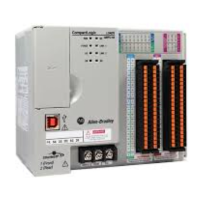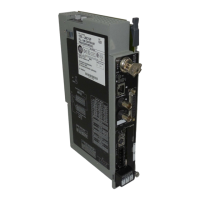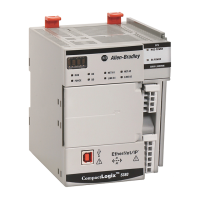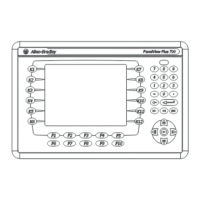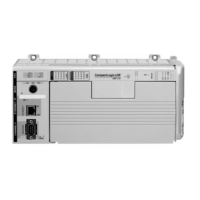Rockwell Automation Publication 1756-RM100F-EN-P - October 2018 103
Standard Application Conversion Chapter 5
Late Binding of I/O Data
The Compact 5000™ I/O module family is the first set of Allen-Bradley® I/O
modules use the following:
• A high-speed backplane that is optimized for performance that
significantly exceeds previous I/O module families.
• A standard design for I/O tags based on module type that can be
replicated in the development of other I/O modules.
The standard design can simplify how you use modules from different
I/O module families in a Studio 5000 Logix Designer application
project.
Standard Native I/O Data Types and Tags
When you add I/O modules to a Logix Designer application project, the
application automatically creates native I/O data types and tags. Historically,
the native I/O data types and tags differed between I/O module families
because the module designs differed.
With the introduction of the standard design by module type, the Logix
Designer application creates standard native I/O data types and tags for
modules of the same type irrespective of their families. Standard native I/O
data types and tags make possible the concept of “late binding” of I/O data in
Logix 5000 controllers.
You can write programs, routines, and Add-On instructions that operate on a
set of standard I/O tags. The programs, routines, and Add-On instructions can
then be applied, regardless of the I/O module family that is connected to the
controller, early in the design phase and at any point in the implementation
process, and use the same syntax.
The standard I/O data types and tags remove the task of changing or updating
programming code modules based on the specific I/O module family that is
used. As more I/O modules that use the standard design are developed, the use
of multiple I/O module platforms in a Logix Designer gets progressively easier.
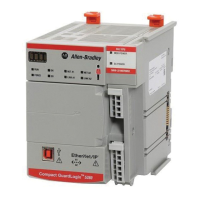
